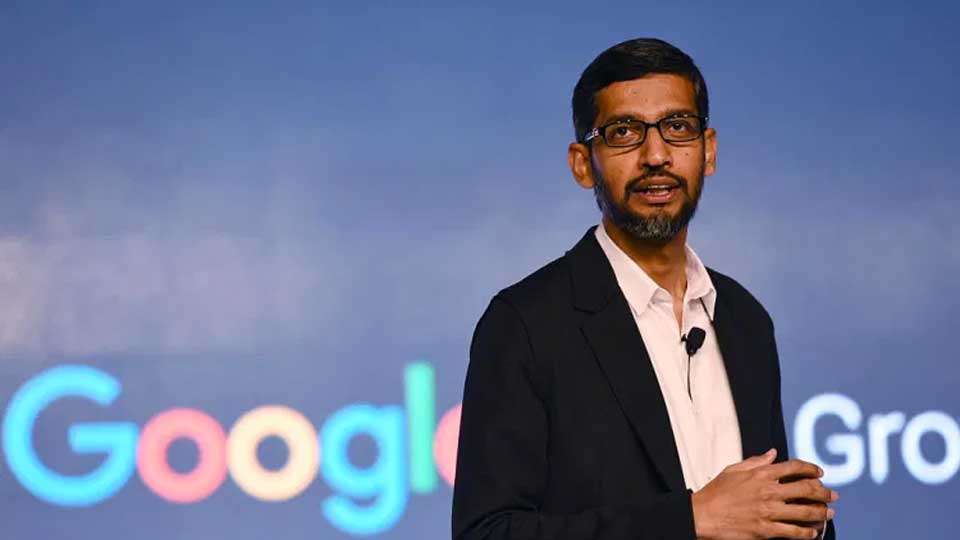Stress at the Top
Workplace stress has become a defining challenge of modern professional life—even for the world’s most powerful executives. With the growing complexity of global business, even high performers need strategies to remain calm under pressure. One voice that stands out in this conversation is Sundar Pichai, CEO of Google. His approach to handling stress, shaped by experience and mentorship, offers not only clarity for leaders but also practical insights for anyone navigating a demanding work environment.
Alongside Pichai, leaders like Jeff Bezos, Melinda French Gates, and Oprah Winfrey have shared their own lessons on resilience and emotional balance. Together, their perspectives reveal a holistic blueprint for reducing stress while sustaining productivity.
Sundar Pichai's Stress Advice: Decisions Drive Momentum
At the heart of Sundar Pichai's stress philosophy lies one simple mantra: “Make the decision.” He attributes this wisdom to the late Bill Campbell, Silicon Valley's legendary mentor and executive coach. According to Pichai, decision paralysis is a major cause of executive stress. Leaders often spend excessive time deliberating over details that, in the grand scheme, may not significantly alter outcomes.
“The act of deciding moves the team forward. Most decisions aren’t life or death,” Pichai said.
By making decisions, even imperfect ones, Pichai believes that organizations unlock progress and ease internal anxiety. This technique aligns with a broader executive theme: clarity breeds momentum, and momentum mitigates stress.
Why it works:
In cognitive psychology, the stress response is amplified by uncertainty. Decision-making reduces ambiguity, giving teams psychological relief and direction.
Takeaway for professionals:
Don’t obsess over perfection. Choose progress. Making timely, well-informed decisions, even when not ideal, relieves both personal and team pressure.
Jeff Bezos: Stress Melts When You Take Action
Jeff Bezos, founder of Amazon, offers a different but complementary angle. For him, stress is a symptom of inaction.
“Stress comes from ignoring things you shouldn't be ignoring,” Bezos explained in a past interview.
When leaders avoid difficult conversations or postpone tough calls, pressure accumulates. Bezos’ advice is straightforward: identify the root of your stress and act on it.
This proactive mindset is vital for anyone in high-stakes environments. By addressing the source of discomfort directly—be it an underperforming team member, an unresolved conflict, or a strategic bottleneck—individuals regain a sense of control.
Why it works:
Bezos’ advice taps into behavioral psychology. Avoidance creates a mental loop of worry, whereas action interrupts that loop and offers closure.
Takeaway for professionals:
Don’t wait for stress to resolve itself. Define the cause, create an action plan, and address it directly. Ownership deflates anxiety.
Melinda French Gates: Self-Compassion for Sustainable Performance
While Sundar Pichai and Jeff Bezos focus on external problem-solving, Melinda French Gates emphasizes internal emotional balance. Her stress advice revolves around self-compassion—especially when tackling hard, systemic problems like gender equity or public health.
“You’re working on problems society left behind because they’re hard. Be kind to yourself,” she said, quoting Warren Buffett.
Melinda acknowledges that some goals, especially in social sectors, don’t show immediate results. Rather than internalizing stress as failure, she recommends adjusting expectations and embracing emotional patience.
Why it works:
Research in neuroscience suggests that self-compassion improves resilience and lowers cortisol, the stress hormone. It also enhances cognitive flexibility.
Takeaway for professionals:
Don’t equate progress with perfection. Difficult work takes time. Grant yourself the grace to struggle without shame or self-blame.
Oprah Winfrey: Meditation and Mindfulness Build Emotional Armor
Oprah Winfrey credits her ability to manage stress to a consistent mindfulness practice. For her, Transcendental Meditation is not a luxury but a necessity.
“I give myself 20 minutes of quiet, twice a day,” she shared. “It changes how I show up.”
Oprah’s routine is not about productivity hacks. It’s about centering the mind. She believes that by creating space for reflection, she enhances not only her emotional health but also her relationships and decision-making ability.
Why it works:
Mindfulness meditation has been scientifically linked to reduced anxiety, improved focus, and greater emotional regulation. It rewires the brain to pause before reacting.
Takeaway for professionals:
Start small. Even 10 minutes of daily silence can anchor your nervous system. Apps like Headspace or Calm can help you get started.
How to Apply Executive-Level Stress Advice in Your Life
The beauty of these approaches lies in their simplicity and accessibility. You don’t need to be a billionaire CEO to benefit from them. Here’s how you can begin integrating their stress strategies into your day:
- Schedule Decisions – Avoid overthinking. Set deadlines for decisions and trust your instincts.
- Action Journal – When stressed, list what’s bothering you and outline immediate actions. This is your Bezos-style playbook.
- Practice Grace – Be like Melinda. When a task feels insurmountable, remind yourself: hard does not equal failure.
- Breathe and Reflect – Start each day with mindfulness. Even one minute of breathing can shift your energy.
- Debrief Your Day – At the end of each day, review what you acted on, what you avoided, and what can be tackled tomorrow.
Conclusion: Leadership Lessons for Every Level
Stress is universal, but as Sundar Pichai’s stress advice and others’ insights demonstrate, how we respond to it is a choice. Whether you're running a global tech firm or managing a small team, the principles remain the same: decide boldly, act quickly, forgive yourself, and pause mindfully.
Adopting these principles can elevate not just your performance but your well-being. And in today’s high-pressure world, that's not a luxury, it’s a necessity.
Read More






 Monday, 02-03-26
Monday, 02-03-26







